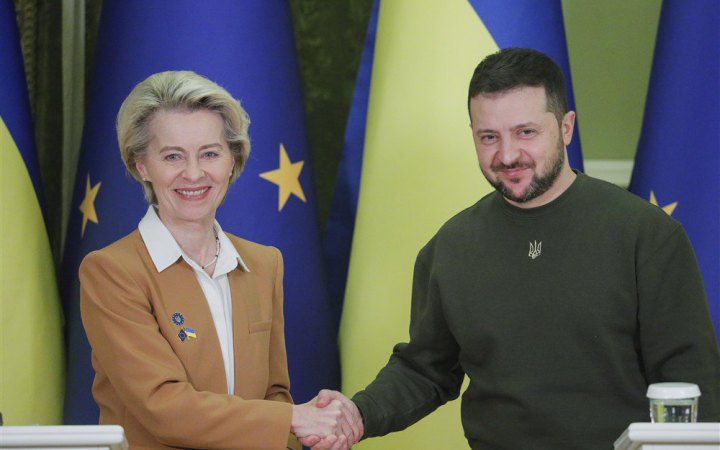The European Commission, the executive arm of the European Union, is preparing to recommend the start of substantive negotiations on Ukraine's EU membership, Bloomberg reports, citing sources.
The accession process is expected to be years-long. The European Commission may also insist on progress in some priority areas, including corruption. These will be the so-called intermediate steps.
Once the commission makes its recommendation, EU leaders would have to sign off on it, most likely at their summit meeting in December. After that, Ukraine would embark on the lengthy procedure to complete reforms and align itself with EU legislation in more than 30 areas, including the rule of law and the economy.
It is noted that there is no existing fast-track path to speed up the arduous membership criteria, which can normally last more than a decade. Croatia was the last country to join the bloc and its application lasted 10 years before it was formally accepted in 2013.
For the EU, Ukraine’s accession is shaping up as a crucial test of the bloc’s capacity to absorb new members, and to adapt its decision-making process. Russia’s ongoing war in Ukraine — and earlier applications from several other countries, particularly in the Western Balkans — also complicate the debate.
Reviving enlargement of the 27-member bloc comes at a critical moment as it seeks to ensure eastern European countries remain within its orbit, not that of Russia or China.
Ursula von der Leyen, the commission’s head, has said that the EU should pursue integration while opening the doors to new candidates “to give us the geopolitical weight and the capacity to act.”
The commission’s recommendation will be discussed by member states in December, when EU leaders could give their blessing to opening accession talks with Kyiv, although the stances of a few countries including Hungary remains to be seen.
In order to trigger the accession process, Ukraine needs to make progress on reforms. The commission told member states this week that progress is on track on some outstanding reforms, including the reform of the Constitutional court, and more is needed on fighting against corruption and money laundering, the protection of minorities and reducing the influence of oligarchs in the country.
Ukraine has completed reforms on the governance of judiciary bodies and the media sector.
David Arakhamiya, the head of Zelenskyy’s party, said on telegram on Thursday that the parliament has already adopted 99.9% of EU demands to start the accession talks and debated a law imposing more scrutiny on politicians, also among its requests. He said “there are many discussions” on the law “but I am sure that we will work on it and we will adopt it in the second reading in several weeks.”
The EU will need to carefully sequence the interim steps after a possible leaders’ green light as it will take time to address issues including corruption, one EU diplomat said. The move will also require striking a delicate balance to show the Western Balkans candidates that there are no short cuts for Kyiv, the diplomat added.
On 21 September, the Rada adopted the law on national minorities, which was one of the requirements for the start of negotiations on Ukraine's accession to the EU. Those that could have restricted the rights of the Ukrainian language were not taken into account.
Last week, Prime Minister Denys Shmyhal said that Ukraine needs to bring 5,000 more legislative acts in line with EU recommendations as the penultimate step toward accession. He noted that the start of accession talks is important for macro-financial stability.








